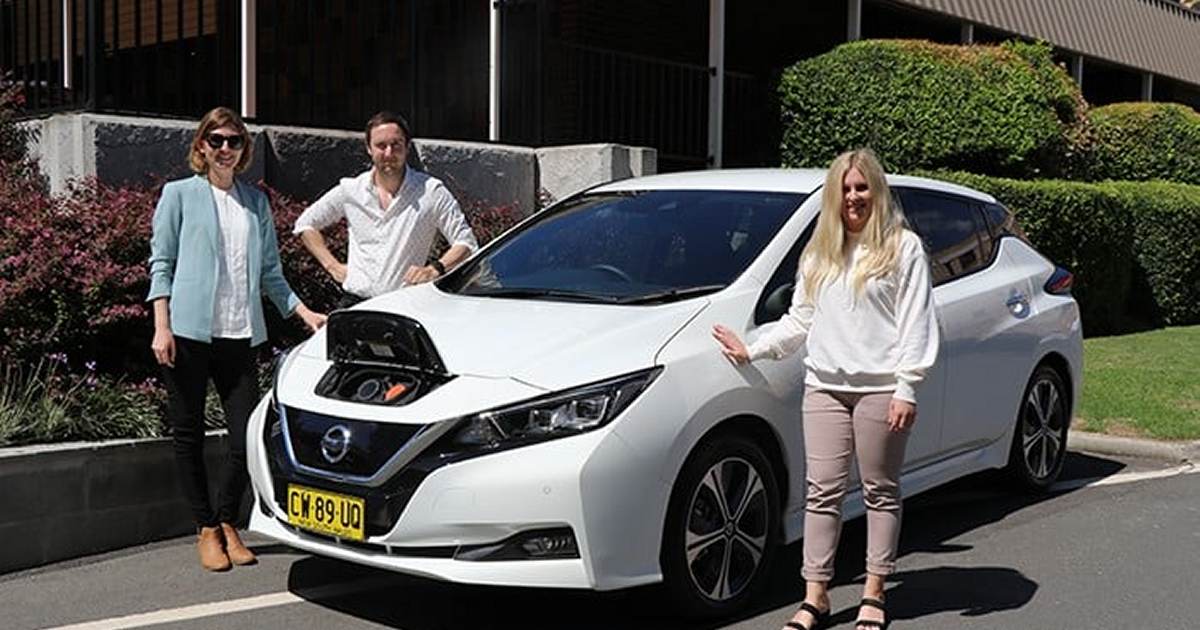
Sydney’s Campbelltown City Council is putting a Nissan Leaf through its paces – and it will be charged with some help from solar energy.
The electric vehicle will be utilised by the assets team as it conducts inspections of Council’s community facilities, roads and other key infrastructure across the city.
“Reducing the carbon emissions of our services is something we are invested in for the benefit of our community now and into the future,” said Mayor George Brticevic. “This trial will enable us to assess the viability of introducing more electric vehicles into our fleet over the coming years and move our organisation towards cleaner energy use.”
Council says it is reviewing its current fleet policy and developing a plan to transition to battery electric vehicles, and is also looking to trial a battery electric truck in its heavy vehicle fleet.
The Nissan Leaf made its debut back in 2010, and by December last year half a million had been sold globally. It was the world’s all-time top selling plug-in electric car through to December 2019, but sales of the Tesla Model 3 saw it lose the crown early last year.
The Nissan Leaf took the number 4 spot for plug-in EV sales in Australia from the beginning of January to the end of August last year according to The Driven, behind the Tesla Model 3, Hyundai Kona Electric and all-electric Ioniq.
According to Nissan, the standard Leaf 40kWh has a 270km indicative driving range and is priced from $53,190 drive-away – so pretty pricey for a small vehicle.
Campbelltown City Council And Solar Power
Some of the electricity needed to charge the Nissan Leaf will be generated through harvesting the energy of the sun.
Campbelltown is one of 18 Councils participating in a program taking output from Moree Solar Farm in northern New South Wales. The agreement with Moree Solar Farm covers 20 per cent of Council’s entire electricity consumption and not only is this reducing its carbon footprint, but also bringing significant energy cost savings.
This arrangement is in addition to Council’s on-site solar portfolio which consists of more than 2,000 solar panels installed at various facilities generating an estimated 740,000 kilowatt-hours annually.
Councils across Australia have played an important role in raising awareness within their communities of the benefits of solar energy through walking the talk. It looks like they’ll be helping to drive EV uptake too through again leading by example. Many are already dabbling in electric vehicles – everything from small hatchbacks such as the Nissan Leaf through to electric garbage trucks.
Trivia: In the Campbelltown postcode area (2560), more than 7,000 small-scale solar power systems had been installed by the end of January this year.

 RSS - Posts
RSS - Posts



I am wondering whether a comparison (Australian) exists for the BEV’s in Australia, that cost under 60,000AUD “driveaway”.
Also, I am wondering whether any state/territory in Australia, has, or allows, two way electricity transfer between BEV’s and households (kind of like V2G, but, without the electricity from the BEV necessarily going beyond the household, into the grid), and, whether existent, available within Australia, hybrid inverters provide for this.
Excellent choice for a safe reliable regional commuter car. The other EVs mentioned have bren plagued with recent battery and safety issues. The Leaf isn’t the longest range or fastest charging but it is rock solid. Enjoy.
Hopefully solar grid tied EV charger canopies and picnic tables will be installed every 50 miles throughout the outback and worldwide.